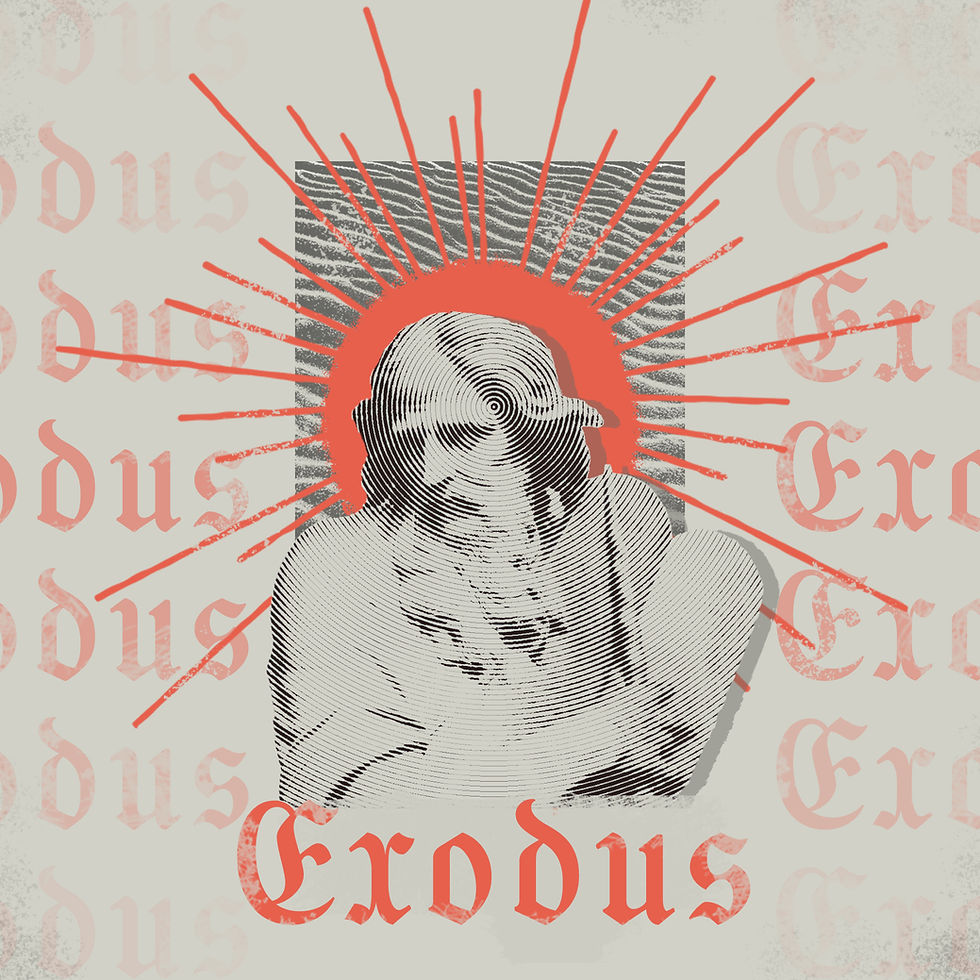Sermon Guide: John 18:12-40 “Jesus on Trial”
- Jon Watson

- Apr 17, 2025
- 4 min read
Date Preached: April 13, 2025
Key Passages
John 18:12–14, ESV
So the band of soldiers and their captain and the officers of the Jews arrested Jesus and bound him. First they led him to Annas, for he was the father-in-law of Caiaphas, who was high priest that year. It was Caiaphas who had advised the Jews that it would be expedient that one man should die for the people.
John 18:19–40, ESV
The high priest then questioned Jesus about his disciples and his teaching. Jesus answered him, “I have spoken openly to the world. I have always taught in synagogues and in the temple, where all Jews come together. I have said nothing in secret. Why do you ask me? Ask those who have heard me what I said to them; they know what I said.” When he had said these things, one of the officers standing by struck Jesus with his hand, saying, “Is that how you answer the high priest?” Jesus answered him, “If what I said is wrong, bear witness about the wrong; but if what I said is right, why do you strike me?” Annas then sent him bound to Caiaphas the high priest. Now Simon Peter was standing and warming himself. So they said to him, “You also are not one of his disciples, are you?” He denied it and said, “I am not.” One of the servants of the high priest, a relative of the man whose ear Peter had cut off, asked, “Did I not see you in the garden with him?” Peter again denied it, and at once a rooster crowed. Then they led Jesus from the house of Caiaphas to the governor’s headquarters. It was early morning. They themselves did not enter the governor’s headquarters, so that they would not be defiled, but could eat the Passover. So Pilate went outside to them and said, “What accusation do you bring against this man?” They answered him, “If this man were not doing evil, we would not have delivered him over to you.” Pilate said to them, “Take him yourselves and judge him by your own law.” The Jews said to him, “It is not lawful for us to put anyone to death.” This was to fulfill the word that Jesus had spoken to show by what kind of death he was going to die. So Pilate entered his headquarters again and called Jesus and said to him, “Are you the King of the Jews?” Jesus answered, “Do you say this of your own accord, or did others say it to you about me?” Pilate answered, “Am I a Jew? Your own nation and the chief priests have delivered you over to me. What have you done?” Jesus answered, “My kingdom is not of this world. If my kingdom were of this world, my servants would have been fighting, that I might not be delivered over to the Jews. But my kingdom is not from the world.” Then Pilate said to him, “So you are a king?” Jesus answered, “You say that I am a king. For this purpose I was born and for this purpose I have come into the world—to bear witness to the truth. Everyone who is of the truth listens to my voice.” Pilate said to him, “What is truth?” After he had said this, he went back outside to the Jews and told them, “I find no guilt in him. But you have a custom that I should release one man for you at the Passover. So do you want me to release to you the King of the Jews?” They cried out again, “Not this man, but Barabbas!” Now Barabbas was a robber.
Sermon Overview
The kingdoms of this world jockey for power and influence, and often use deception and corruption to get what they want. Jesus’ kingdom is different — it’s not of this world. That comparison snaps into focus when Jesus, the King who bears witness to the Truth, is tried by two corrupt authorities.
Although it seems like Jesus ‘lost,’ his exchange with Barabbas hints at his victory: Jesus will stand accused in the place of the guilty, who can go free because he took the punishment he deserved.
Sermon Structure
The Jewish Trial
Annas’ questioning
Jesus has no “secret teachings”
The Roman Trial
The Jews’ need for Rome
Pilate’s concern: “Are you King?”
Jesus’ purpose for coming into the world
The Heavenly Trial
No crime in Christ
Jesus took the punishment that Barabbas deserved
Questions for Discussion & Reflection
Why do you think it was important for Jesus to stand trial before both the Jews and the Gentiles? What significance does that have for the message of John’s Gospel?
Look at John 18:37. What do you think Jesus means by “bearing witness to the truth”?
What does it mean to be “of the truth” — and how do we know if we are?
Read 2 Corinthians 5:9–10. If our judgment fell on Christ at the cross, what do you think the judgment seat of Christ on the last day will be like for us?


Comments